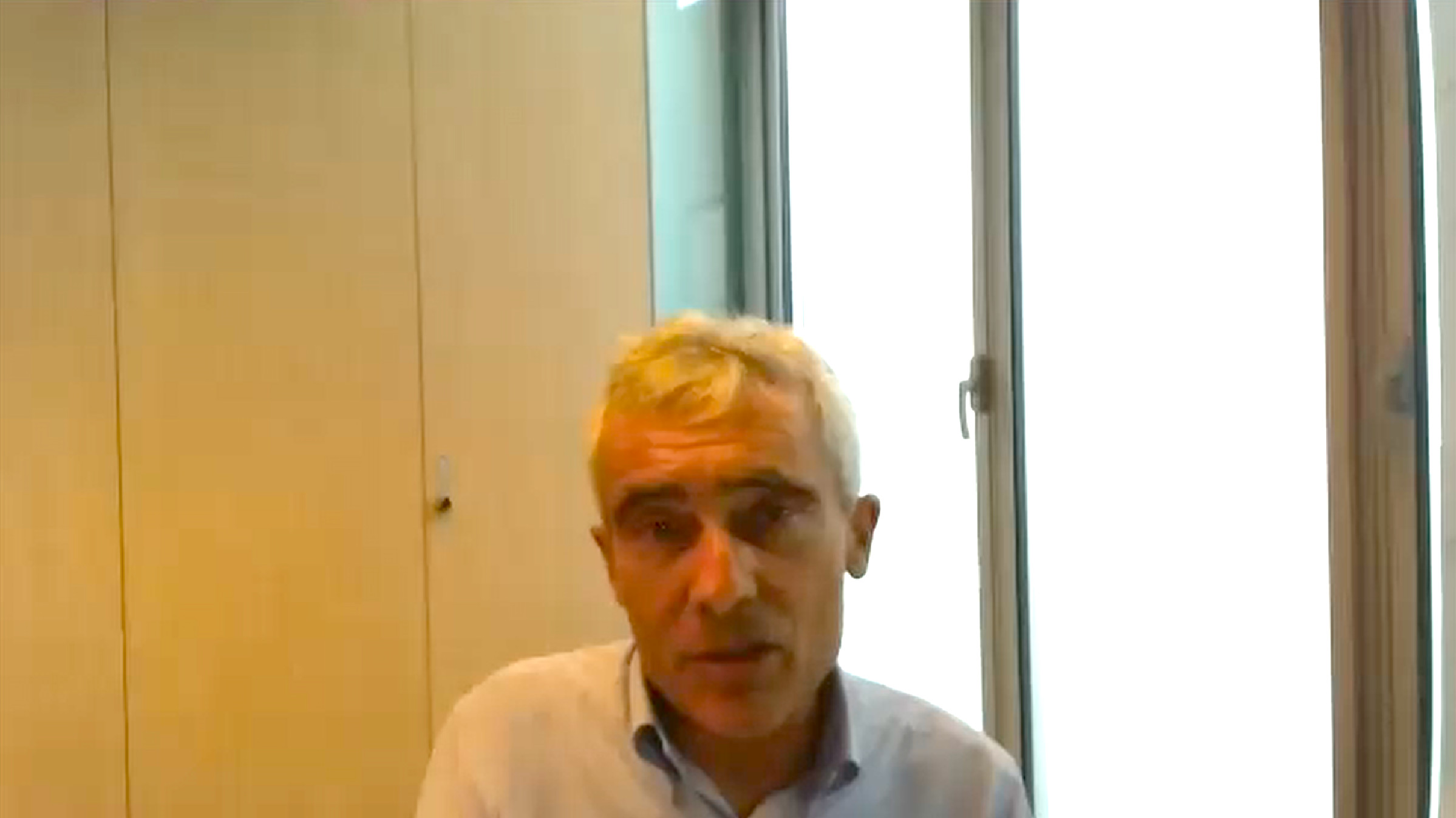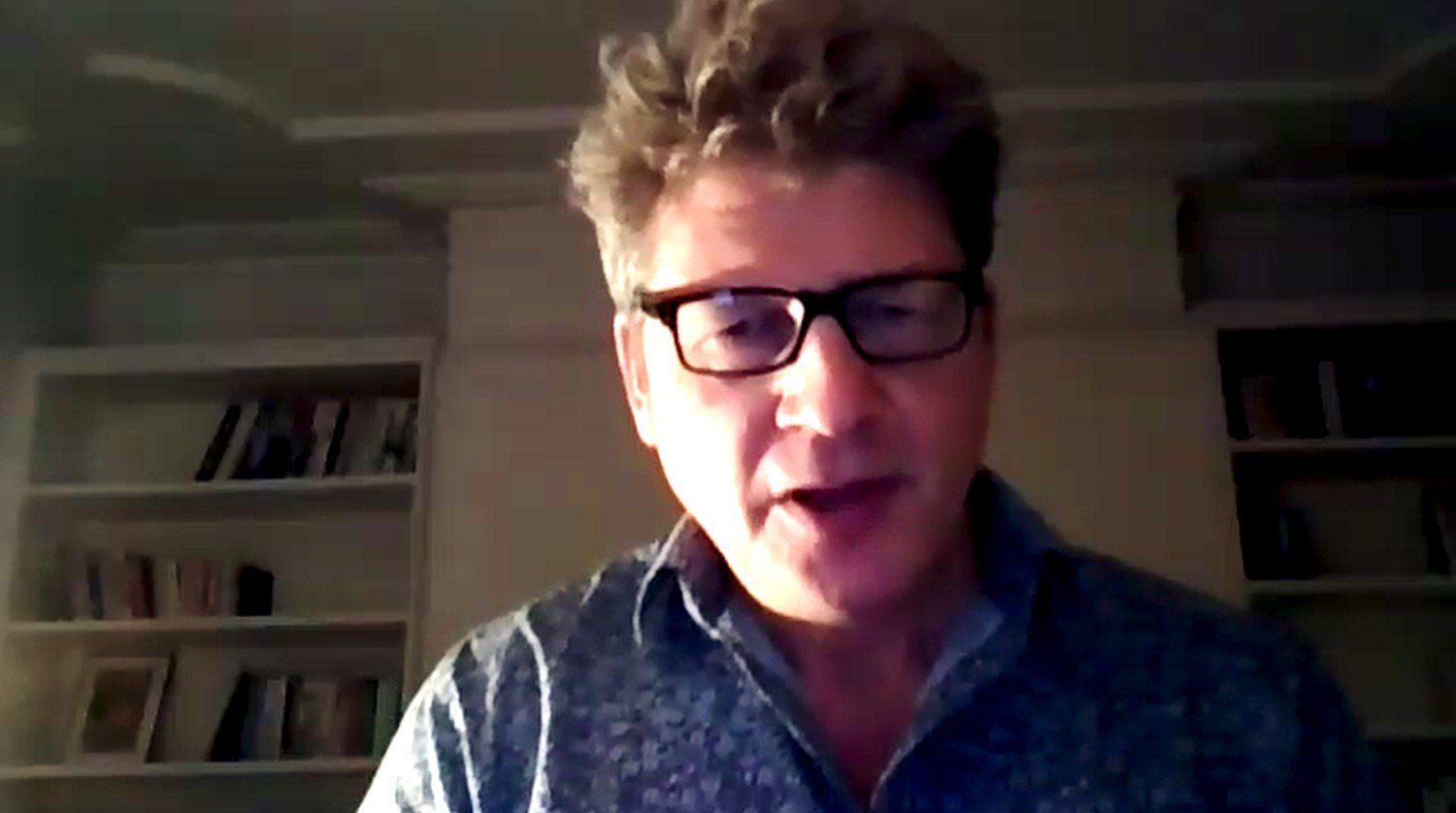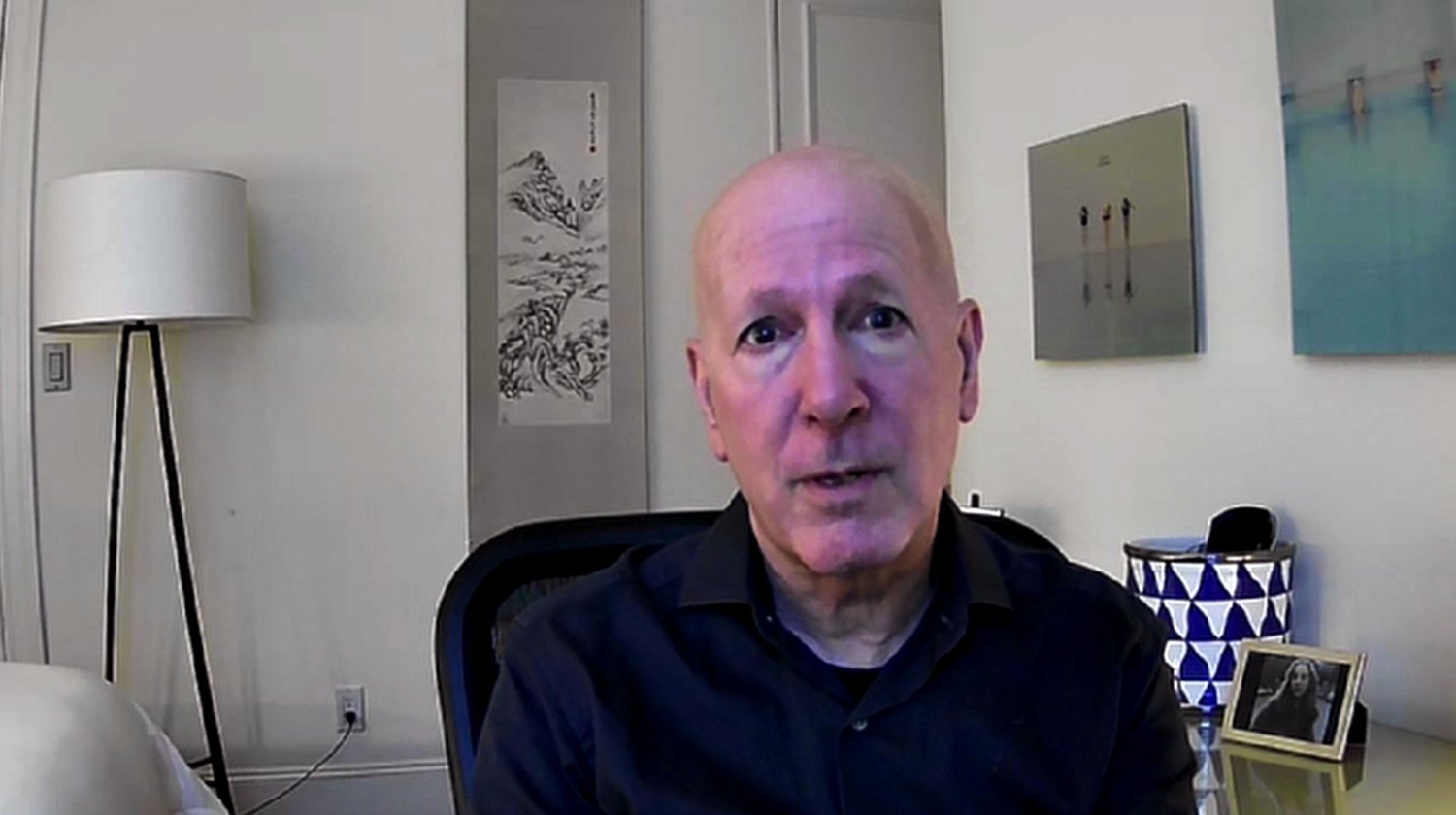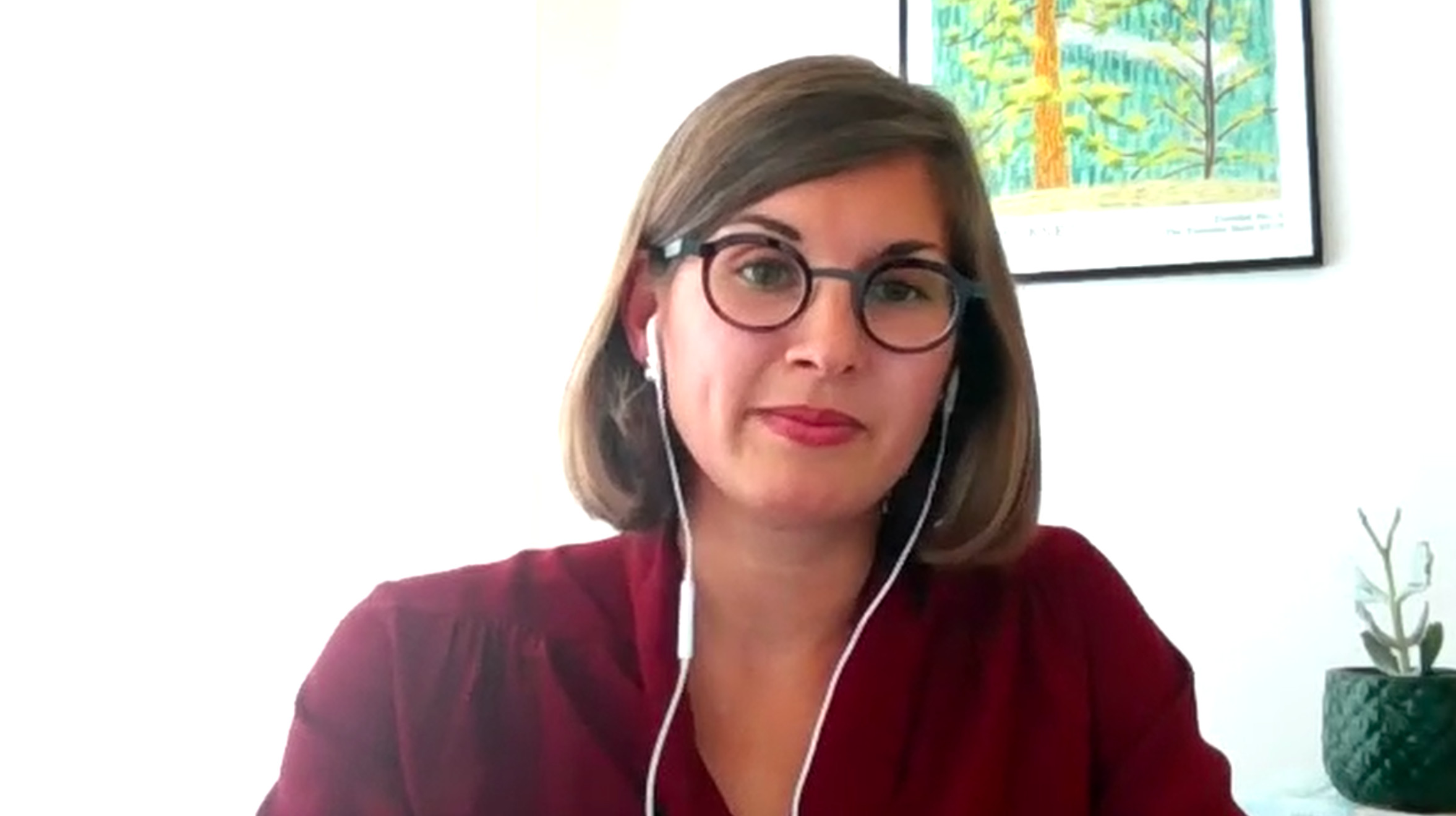Katharina Pistor
German. Edwin B. Parker Professor of Comparative Law at Columbia University, scholar and author
1. Why does economics matter?
Economics, of course, is a big, big field, and I would start with a basic notion that oikos is the household. So managing households, managing survival in the early stages, managing maybe growth, managing innovation in families, communities, societies is of course an essential part of the human endeavor because we live together and we’re trying to manage our resources and our survival together in one way or another. And however you define economics, I think it boils down to this very minimum understanding. It’s really about managing households and survival.
2. What are the differences between economic science (academic economics) and economic engineering (policymaking)?
There has been, in my view, a fusion of the two fields and maybe not for the betterment of the world. So I think in the 1990s there has been a very strong trend towards empirical economics, but very much based on theoretical notions drawn from neoclassical economics. So I was involved very deeply in discussions about the transformation of the former socialist world in Eastern Europe and the mass privatization and radical reforms and have had my battles with some of the economists at the time who, in my view, did not understand really the institutional set-up, the politics and the social dimensions of everything.
So that was a time where I think there was an immediate translation of models in economic thinking into policy advice in a way that was quite detrimental. So I think economics as law is, to me, an applied science. It’s one that would be better served by a more inductive approach that understands the world before ramming through some abstract models to try to reshape the world in some kind of normative fashion. So I think that’s the really wrong turn I’ve see in economics in the last decades
So the attempt to reimagine and reengineer the world in light of certain economic models, rather than trying to understand patterns in the world and seeing how we can shift them - with a normative agenda, but we also have to talk then about what this agenda would be. So I think in some ways economics, as I said, is an applied science, but it has tried to be maybe too academic, too mathematical, too removed from the world but then turned back and tried to reshape the world in its own image. And I think that’s, in my view, where the discipline derailed somewhat.
3. What role does economics play in society? Does it serve the common good?
I think I answered some of this question already. I think economics as such - the management of households, the management of entire national economies, maybe even the global economy- is an essential part of what we do and who we are, in a way. Whether or not it serves the common good really depends on how it is done. And as I suggested earlier, I think the idea to reshape the world in light of certain models, reimagine economics as only being about markets rather than about social organizations, is sort of in tension with how societies really organize themselves.
And if you try to ram through a particular model onto societies without understanding what the interdependencies might be and the repercussions might be for distributive effects, for politics, for minorities, et cetera, et cetera, I think then it doesn’t really serve the common good if we define the common good as serving really everybody in some way. So I think it has the potential to serve the common good. If you go back in history, you have figures like Adam Smith and he not only wrote about the Wealth of Nations, but about morality and jurisprudence.
And so we have, of course, this division of labor in academic disciplines these days. And that also serves us well because we can really focus. But when we do applied economics, when we apply our theories to the real world, we have to make a leap and understand what the complexities of the real world are. And I think we also have to be much more interdisciplinary, not only imperialist, which I think economics has been - that economics has conquered every other discipline in its neighborhood, but it has not really been interdisciplinary in trying to understand the foundations and logics of other disciplines around it.
So yes it can, I mean, lawyers always will tell you “it depends,” it depends on the contingencies. And so I’m giving you some of the contingencies that I find important.
4. Economics provides answers to problems related to markets, efficiency, profits, consumption and economic growth. Does economics do a good job in addressing the other issues people care about: climate change and the wider environment, the role of technology in society, issues of race and class, pandemics, etc.?
So it always depends, again, on what economics we’re talking about. So in principle, broadly understood, the scientific approach to economics would be able and should be able to have something to say about these issues. Most of the issues that you’re mentioning have a broad, interdisciplinary character, right? Not none of our dominant disciplines will be able to answer them on their own. But economics is currently understood, focusing so much on the ideal of a market, on efficiency, on just market transactions, which doesn’t have a concept of money, doesn’t have a concept of really the distributional effects of what happens when we when when we allocate goods does not have answers to these issues.
It also doesn’t have answers to climate change. Climate change is basically captured as something that might produce costs in the future. And we address it only if we can find the right discount factor to know what to do about it today. So I think as economics has been configured over the last several decades in in the academy, but also in policy advice, it unfortunately doesn’t have answers. There are economists who are working on this. There are also economists creating new training programs for students so that economics will be able to at least say something about capitalism or about some of the issues that we are talking about. But currently it does not.
5. As we live in an age of economics and economists – in which economic developments feature prominently in our lives and economists have major influence over a wide range of policy and people – should economists be held accountable for their advice?
Well, this is a very economics approach to the idea of giving advice. The idea is basically we hold people accountable. If they know that they’re being held accountable, then they have the right incentives not to do wrong things, ex ante. And, I just don’t believe that works in this context. First of all, the economist will give advice and are out there in the field, they won’t have the resources to do right all the wrongs that have been done, if they give the wrong advice. There’s just no relationship to budging the privatization program in Russia and the personal wealth of any of the economists who have been involved in that, for example. And, I think it’s also just fundamentally the wrong approach, because I think they were trying to do the right thing. They didn’t have the intention to do wrong. They started with very narrow models of the real world and on the basis of which they gave advice - assuming, of course, they’re benevolent, which I do for the purpose of the argument.
What I think is much more important is to contestability and contestation, bringing more people into the room and really debating these issues. Economics has assumed for itself a level of truth and knowledge and imperialism vis-a-vis other disciplines that I think has not served well the quality of the advice economists have given. And, rather than say, well, I hold you accountable, I would rather say let’s have more debates and let’s broaden the field of experts who are being brought into the room ex ante, for example.
6. Does economics explain Capitalism? How would you define Capitalism?
Let me start with my definition. I would say capitalism is a market economy on legal steroids. That is, some people get legal protections for their assets that give them a comparative advantage over others.
And the important thing is that the law is a social resource. So capitalism is always portrayed as something where just smarter people, better skilled people, just people with a better entrepreneurial spirit can just advance and do the right thing, and somehow everybody benefits because all ships rise together, etc., etc.. I’ve written this book “The Code of Capital” and basically I am saying the code of capital is the legal code. And think of this as the DNA or the software code. That’s where the information for, or the core, or the sense of how you can get wealthy, comes from. It is having property rights, which means I have better rights than you have rights. It’s limited liability, it’s a license to externalize, which the law gives you. If you create a corporation, it’s a security interest which gives you a competitive advantage vis à vis other unsecured creditors and so forth.
And having access to these legal devices, in effect having access to the centralized means of coercion in a highly decentralized fashion, is what capitalism is all about. You need the lawyers as intermediaries that code different types of assets as wealth producing assets. And that’s what the system is about. So it is, of course, a system that has produced wealth like none other, but it also correlates with the rise of nation states. It’s not without the state, the state is absolutely central. And I think it’s always about trying to get access to the centralized means of coercion in a way that you can get a competitive advantage over others.
And we have institutionalized the centralized means of coercion, we’ve institutionalized the state in such a way that it has become easier for private parties to do that. But you can trace this back to the enclosure movement of the 16th century. They won their battle in the courtroom, not in the battlefields.
And the legislation that came about for enclosure that ended it (enclosure) in the 17th century was only the final step. But most of the enclosure battles were fought in the courts. You can trace intellectual property rights, the development of lobbying for certain kinds of rights that certain groups become its basic industrial policy all the way to the state. And then it’s being reimagined in the public imagery to legitimize it as the sanctity of property rights, which is then heralded. But essentially that’s what it’s all about.
And so coming back to the first part of your question, you ask what capitalism can accomplish? Can you just repeat?
[AoE]: Does does economics explain capitalism and how would you define capitalism?
Economics, again, when you think about the different strengths in economics. Karl Marx was a lawyer by training but he thought about economics. Of course, he had a definition of capitalism. So did Hyman Minsky. Hyman Minsky basically said capitalism is essentially a financial system. And that comes close to what I think, because finance is, of course, only about law. Every financial asset that you have is an IOU and you can trade it only because it’s enforceable. If I promise you that I give you tomorrow one million dollars, you cannot trade that. I mean, you would have to find an idiot who would buy that promise because it’s not enforceable.
So every IOU is basically a legally enforceable right. And you can then dress it up, if you put it in trust, you put collateral on top of it and you put it on legal steroids, as I said before. And then all of a sudden you have tradable assets that people buy in anonymous markets where they don’t have to think about who issued them or from whom they’re buying it, because ultimately it’s enforceable in some court of law.
That’s the system basically that we have created. I’m just going back to what I said earlier, I think it’s an inherently socially constructed, also hierarchical system, that gives some with the right access to the coercive means of the state a competitive advantage over others.
7. No human system to date has so far been able to endure indefinitely - not ancient Egypt or Rome, not Feudal China or Europe, not the USSR. What about global Capitalism: can it survive in its current form?
Obviously not. I think that’s not even a question. I mean, we are living in a bounded natural system and capitalism pretends that it’s unbounded.
Capitalism is always about monetizing future gains. It’s always making a bet on the possibility that the future will bring more returns than the present. And you’re trying to sell that and monetize it today, that’s what the system is about. And it works because we’ve created the trust in institutions and the trust in the enforceability, and of course you always have a strong speculative element as well. In a naturally bounded system there are natural boundaries and we are we are reaching them.
That’s why we have climate change. I’m not saying that only capitalism has produced climate change - the socialist system has contributed as well, certainly the arms race between the two. I just read this fantastic new book by Jonathan Levy called the Ages of American Capitalism. And he says the real turning point were the World Wars, especially World War II, so the arms race really contributed a lot. But then we have translated this into the civic sphere.
Because once you let the genie out of the bottle, you can’t put it back in. So capitalism, a system that is based on the notion that we can expand, expand, expand without any boundaries, cannot survive in the long term. It’s just impossible. And I think that’s the real conundrum that we face: that on the one hand, it’s very hard to get out of it - I don’t think we can get out of it without a massive crisis, and I dread a crisis like that - and at the same time continuing down that road dooms us. And I have no doubts about that.
[AoE]: You mean we need the motivation of suffering?
Well, we have to constrain ourselves and we have to think about how to distribute the losses. I think if we just continue the logic of what we have, you can just go through some of the most essential resources that we all need for survival.
Think about water, the allocation of water, and use neoclassical economics to allocate water rights. It’s an easy game, right? I mean, millions, if not billions of people will be shut out of water if they can’t pay access to water and they will simply die. You will have droughts in many parts of the world and others will try to capture the resources and survive. So some will survive, but many will not.
If you want to avoid bouts of riots and civil war we have to think about regimes that share losses and share the increasingly limited resources that we have. Otherwise, I think the system will ultimately self-implode. I mean, Marx has always predicted this and we have been able to manage this mostly because the collective resources that we call the state has stepped in and saved capitalism time and again from the abyss. But I think the boundedness of our natural system really is more constraining than our political will for equality or democracy or something like that.
8. Is Capitalism, or whatever we should call the current system, the best one to serve the needs of humanity, or can we imagine another one?
I don’t think it’s the best system to serve humanity. And for reasons I explained; it’s a system that privileges those who have better access to the centralized means of coercion and can code them and use them in certain ways that it’s not even apparent to others what is really going on.
We’re still living in this imagery that these are self-made men and they are just geniuses. Bezos going to the moon almost, at least into the sky, when in fact what they’re using are social resources and leaving the cost mostly to others. I think this is another aspect of capitalism, the license to externalize I mentioned earlier. It’s shifting the cost to others and reaping the gains for yourself. It’s a core feature thereof.
And a system with these features does not serve humanity, if you say humanity is actually everybody, including the poor, the minorities and the disabled, etc. There have been certain, of course, advances that capitalism has helped produce to some extent, although you can dispute even that. I think fundamental research comes mostly from government funding, basic research. It’s when you can monetize it that capitalist innovation comes in. So even on that front, I think it’s not the best system.
I hope we could get over this debate, is it socialism USSR style or is it capitalism Manchester style or maybe current global financial capitalism, there’s got to be something in between. I’m still an optimistic person. I sometimes sound a little dark and cynical, but I do also believe in private initiative and the ability of people to engage and exchange, to produce themselves, to make decisions about their life in the economy and in the social sphere.
I do cherish individual choice, but I think we also have to understand that our individual choice has to be exercised in respect for others’ individual choice. And that’s intentional with shifting the cost and externalizing and getting licenses from the state to externalise. We have to internalize the costs of our own doing much more, and we have to create institutions that enable even larger, complex societies to do precisely that. So I think you can imagine that, but it would require a major reconfiguration of the economic system that we have, that reins in the ability of some to use the system for their own gains rather than for some kind of a common good.
But I wouldn’t call that system capitalism. It would be a very different system in my mind.






